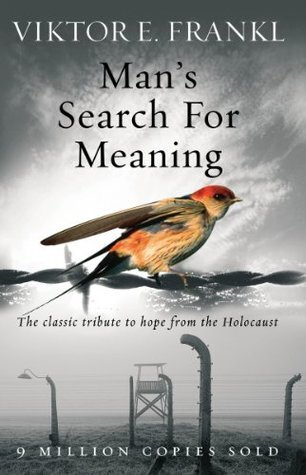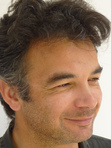Adventures with Words: Man’s Search for Meaning by Viktor Frankl
 Man’s Search for Meaning
by Viktor Frankl
Man’s Search for Meaning
by Viktor FranklMuch has been written about this book and deservedly so: its examination of life and death in the concentration camps of Nazi Germany and how Frankl and others survived is extraordinary – and let us fervently pray that it remains extra – ordinary. But one of the things Frankl’s book does is remind us how much our circumstances and society determine how we behave. We all would like to think that if we had been born in the early 20th century in Germany we would have been one of the brave people who resisted Nazism and tried to smuggle the Jews to freedom. The events of the last two years have unfortunately shown us that the vast majority of the population would happily go along with demonising a sub set of the population, particularly when encouraged to do so by those in power and those with loud media voices. A tiny, tiny percentage of the German population actively resisted the Nazis. We, you and I, would be no different today.
But Viktor Frankl, a German Jew, was in the part of the population that was demonised and destroyed. Frankl survived and his book is, in part, an exploration of why some men lived when others, faced with similar hardships, died. According to Frankl, the key factor in determining someone’s endurance in the face of unimaginable suffering is the ability to find some meaning in that suffering. While a devout Jew himself, Frankl was also a psychiatrist, and in examining the factors enabling survival, Frankl deliberately separated meaning from religious faith: any meaning to be found in the situations the concentration camp inmates fouind themselves in was helpful.
Frankl went on to found a school of psychiatry, called logotherapy, which argues that the search for a meaning to one’s life is the central human motivating force. He may well be right, once we take Maslow’s hierarchy of needs into account and the ordinary necessities for living are accounted for.
But by divorcing meaning from its usual historical anchor, religious faith, Frankl also described the peculiar situation we find in the modern world, where the desperate search for meaning in a consumer world has led to people passionately embracing a whole variety of causes, from veganism to climate change, and equally passionately imposing these values on their fellows. So the peculiar paradox of the 21st century is that its great dilemma is to escape from the fervent beliefs of people searching for meaning in places which simply do not have the moral or intellectual gravity to sustain the importance they attach to them. Hence the increasingly hysterical attempts to force norms on other people, so that the cognitive dissonance of realising that what you have dedicated yourself to simply does not carry the import that you have given it.
Today, we suffer for other people’s meanings. And Frankl unwittingly ushered this in.
The post Adventures with Words: Man’s Search for Meaning by Viktor Frankl appeared first on Edoardo Albert.



